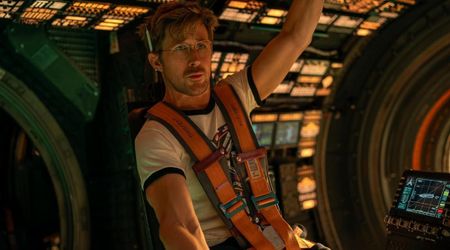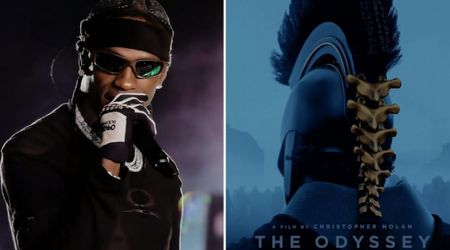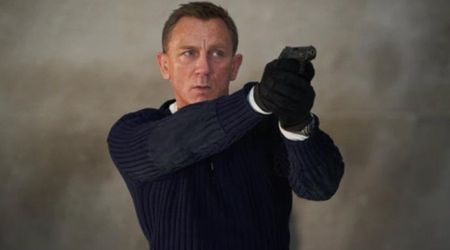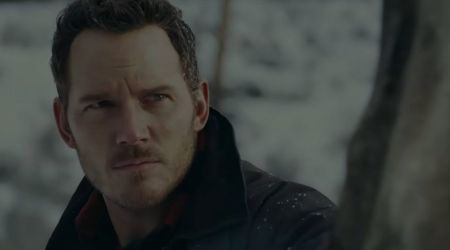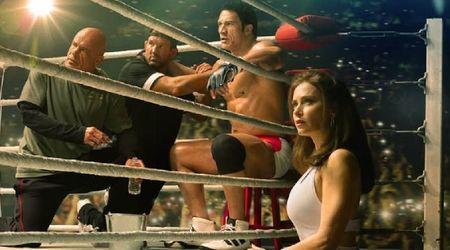EXCLUSIVE | '200 Meters' director Ameen Nayfeh says he was separated from family by Israeli wall

Ameen Nayfeh has many memories that he no longer has access to. "Or," he says, "It could be that I fear to dwell back." Daunting as it is for him to revisit the past, the director breaks his own walls to show a less-known reality. Pitted against the ongoing backdrop of unrest between Israel and Palestine, Nayfeh's newest film '200 Meters' talks about ordinary people, and their collective ache of a forced separation.
The film is based in Nayfeh's hometown Tulkarm, through which runs a giant wall. The Israelis call it a 'separation wall'. The Arabs call it a 'wall of apartheid'. But no matter the name, it is not the politics of the wall that concern Mustafa, the protagonist of Nayfeh's movie. It is the absurdity of his situation. He and his wife Salwa live in two West Bank villages only 200 meters apart. But when his son has an accident, Mustafa must smuggle himself 200,000 meters around Palestine to do his duty as a loving father.
READ MORE
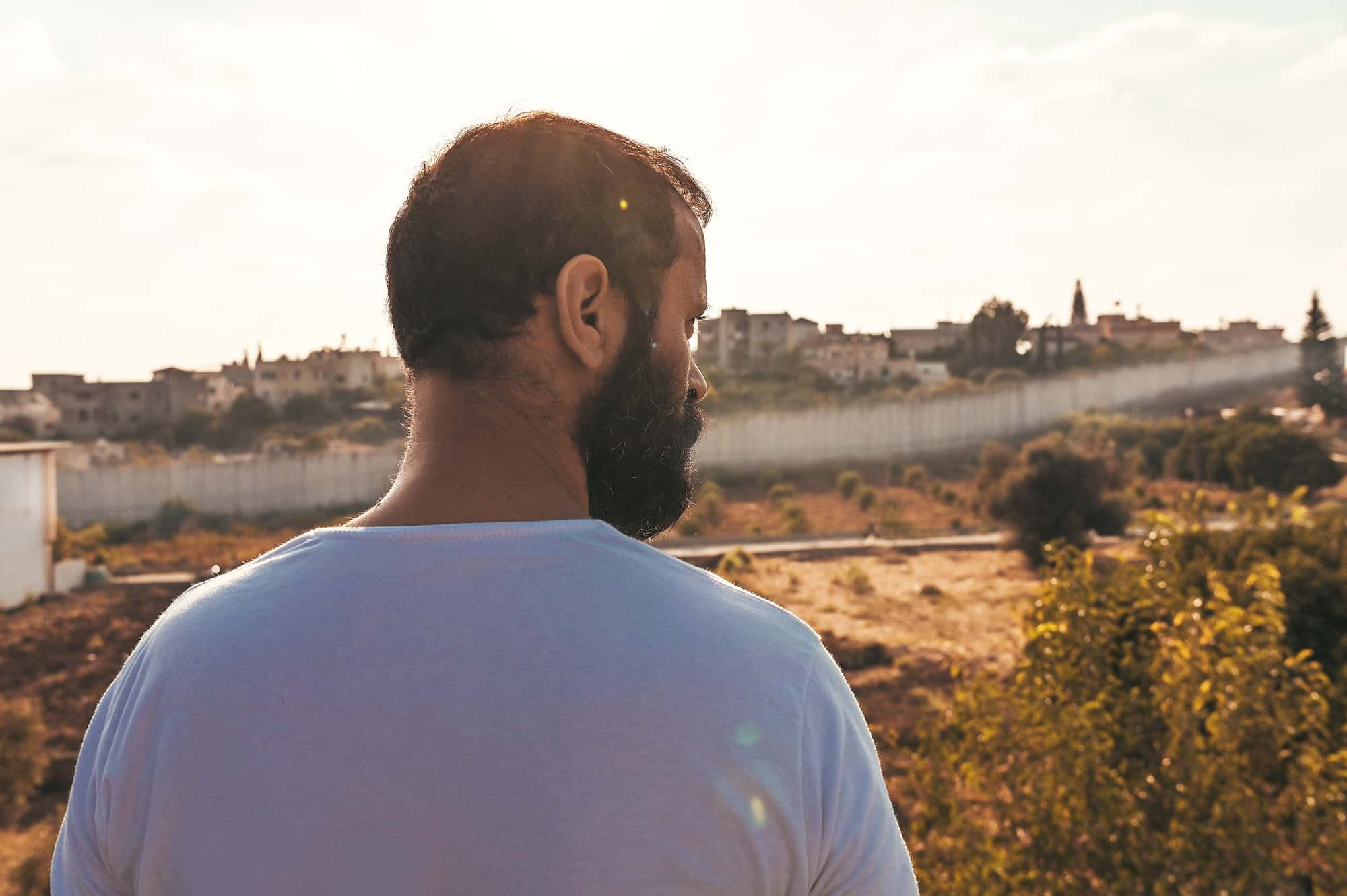
In an exclusive interview with MEAWW, the award-winning film director spoke in-depth about how '200 Meters', the Jordanian selection for the 2021 Oscars, is his story, and what advice he has for filmmakers living in areas besieged by conflict around the world.
Congratulations on your first feature film '200 Meters', it has won a string of awards, most recently winning the ICFT UNESCO Gandhi Award at this year's International Film Festival of India. How does it feel?
It definitely feels rewarding, especially so from the toll of awards- the film won five audience awards and another three human rights awards, one of which was from the Atlanta Jewish Film Festival. For me, this means that the film had reached the audience and fulfilled its purpose. And that, in telling a story from a region that many consider controversial and complicated, I have succeeded in raising awareness about the realities on the ground.

Universal feelings like fatherhood and separation take center stage in the film, while shootings and violence loom largely in the background. Can you talk about why you wanted to tell this side of the story?
Actually, separation is also my personal story and it was the driving force for me to make this film as I was separated from the rest of my family after the separation wall was built in the early 2000s. So, if so to say I didn’t choose the subject out of researching it, but I was speaking about my daily life, about past and current traumas.
To be honest, when I started writing the script there were more scenes about violence and more exposition about the rough reality in which we live, and I was more focused on the journey, the obstacles, and the suspense. But as it took me seven years to raise the funds I had the chance to attend a couple of writing workshops where I was bouncing ideas and receiving feedback from international filmmakers. And I also grew up and perhaps matured altogether with the script as I realized that the fact there is a wall separating a family is enough, I didn’t need anything else to highlight the unjust reality. This is the story and it is powerful enough. And therefore fatherhood became one of the central themes as my goal was to make a film that speaks to an international audience.
The light-signaling sequences on the balcony were like poetry, leading Mustafa and his family from darkness to bittersweet light. What inspired these scenes?
What inspired these scenes are fragments of my memory of things I saw on TV as a kid of separated families and neighbors communicating through megaphones or yelling to each other either in the occupied Golan Heights or across the West Bank. And about the light, I was looking for a symbol that could deliver a lot of meanings rather than just a way of communication. Steadfastness, and a statement that this father is doing what he can and is not giving up.

With the Israel-Palestine clash at its worst since 2014, how can cinema make a difference?
I object to calling it a clash or a conflict but I would rather call it the ongoing Israeli occupation of Palestine because this is the reality that international media is turning a blind eye to. In my film '200 Meters' I tried to take the audience on a tour through the occupied West Bank. We shot on real locations, next to the wall, watchtowers, permanent checkpoints, and settlements. So that the audience could formulate an opinion of whether the state of Israel can ever be considered a two-state solution or not. I was always asked this question: “What is the solution?” I think my job as a filmmaker is to reflect reality so that people can answer such a question themselves.
With social media serving a double role, as a breeding ground for hatred and unification, how can filmmakers, writers, and artists help build a bridge?
Well, it is unfortunate that some people are using social media to breed hatred but in the light of recent events, it proved to be such an important resistance tool. We who live here in Palestine know that our voices are not heard and that our stories are not being told. So, when Palestinian activists were live broadcasting the ethnic cleansing and the storming of the holy mosque in Jerusalem and then finally the bombardment and genocide of families in Gaza, these raw images are what influenced this unprecedented solidarity around the world.

I think artists and filmmakers are responsible for speaking up and exposing war crimes. At the same time maybe helping guide those who showing their solidarity in how and what can they do and also help to eliminate or fight against hate and violence.
Do you have any plans of showcasing the film on streaming sites so as to reach a larger audience?
Yes, actually our International Sales are doing a great job. The film was sold to HBO East Europe and also to a VOD platform in the Middle East called OSN. The film has distribution in North America, France, Italy, Greece, Turkey and hopefully it will reach bigger platforms like Netflix in the near future.
What advice do you have for fellow filmmakers or aspiring filmmakers living in conflict zones around the world?
I understand that filmmakers coming from backgrounds like mine would have very weak cinema infrastructure if any at all. My advice for them is to believe in their own voices and to be patient. It took me 7 years to see this story come to life, and I also advise them to highlight the human stories and keep the politics in the background. But they must know this: their stories must be told, please do not give up.
Watch the trailer of Ameen Nayfeh's '200 Meters' here:


